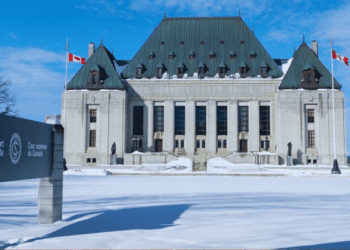 Ottawa’s plan for a FutureSkills Lab, a new bureaucratic organization devoted to skills development, is more evidence that the technocratic impulse is alive and well in Canada, writes Sean Speer.
Ottawa’s plan for a FutureSkills Lab, a new bureaucratic organization devoted to skills development, is more evidence that the technocratic impulse is alive and well in Canada, writes Sean Speer.
By Sean Speer, April 6, 2017
Each generation thinks it’s uniquely qualified to “manage” the economy. Planners, politicians, and public servants invariably come to believe that they have the knowledge and capacity to push, pull, and prod the market in a particular direction. Nobel Prize-winning economist Friedrich Hayek called this impulse the “fatal conceit.”
The latest example is the federal budget’s commitment of $225 million to establish a new bureaucratic organization to, among other things, “identify the skills sought and required by Canadian employers.” Details are sparse but the idea for a “FutureSkills Lab” is a recommendation of the government’s Advisory Council on Economic Growth to “catalyze and enable much more forward-looking approaches to preparing Canadians for the workforce.” The technocratic impulse is evidently alive and well.
Governments have long experimented with planning bodies to oversee the market economy and foretell future developments. The U.K.’s National Economic Development Council was established in 1962 to reverse the country’s economic stagnation by bringing together business, government and labour in a collaborative effort. Canada’s Economic Council of Canada was created a year later with a similar mandate including regional economic development and greater domestic ownership in the economy.
The major commonality was a post-war confidence in the state’s capacity to micromanage the market. President Kennedy’s 1961 Yale commencement speech in which he talked about the “practical management of a modern economy” and described “a great economic machinery” seemed to capture the ethos of the time.
The technocratic impulse is evidently alive and well.
We eventually came to see that this confidence was misplaced. Centralized economic planning couldn’t substitute for the dispersed knowledge of the marketplace. Instead we got over-investment in some areas and under-investment in others and a general economic malaise that shaped new thinking about the role of government in the economy.
Both councils were thus shuttered in the early 1990s in conjunction with privatization, deregulation and other supply-side reforms to remove the state’s visible hand from the market economy. President Clinton famously asserted that “the era of big government is over.” A sustained period of economic growth and dynamism ensued.
Fast forward to the present and there are signs that we’re succumbing to some of the same technocratic tendencies, including in Canada.
Part of this is driven by public concerns about worker dislocation caused by dynamic capitalism. Some of it reflects distance from the historical failures of government planning. And another cause is a presentist fallacy whereby contemporary planners are supremely confident that they can avoid the mistakes of the past.
The FutureSkills Lab seems to reflect all three of these contributing factors. But while the circumstances may be new or different, the basic impulse is the same. Even the language about “provid[ing] a forum for all levels of government, employers, educators, and other stakeholders…to come together” is reminiscent of past planning exercises. The outcome will invariably be no different.
This shouldn’t be a surprise. Government has no unique prescience on the economy in general or the labour market in particular. It can’t possibly replicate the multitude of decisions inherent in market pricing including the matching of good ideas with capital, workers and customers.
It’s the same reason, for instance, that Canadian studies on state-sponsored venture capital have found that these initiatives consistently underperform. As the 1985 Royal Commission on Economic Union and Development Prospects for Canada report rightly observed, economic planning “constitute[s] a basic denial of the genius of the market economy.”
There’s considerable room for new thinking about how government can enable the conditions for inclusive growth and broad-based opportunity.
Now, of course, this isn’t to say that there’s no role for government in education or basic research or intellectual property law or helping those affected by dislocation. There’s considerable room for new thinking about how government can enable the conditions for inclusive growth and broad-based opportunity.
But it is to say that the market isn’t a “machine” or susceptible to top-down “management.” This type of thinking — the technocratic underpinnings of the FutureSkills Lab — isn’t new or “forward-looking.” It’s the same misguided impulse that led to past policy failures. It’s ultimately a formula for politicized decision-making, inefficient public spending, and market distortions.
Most of what government should do in fact is stop distorting the market through corporate subsidies, poorly-designed Employment Insurance, needless red tape, and other ineffectual government interventions. Reforming these policies would be worth 10 FutureSkills Labs and save taxpayers nearly a quarter of a billion dollars.
Sean Speer is a Munk Senior Fellow at the Macdonald-Laurier Institute.




